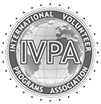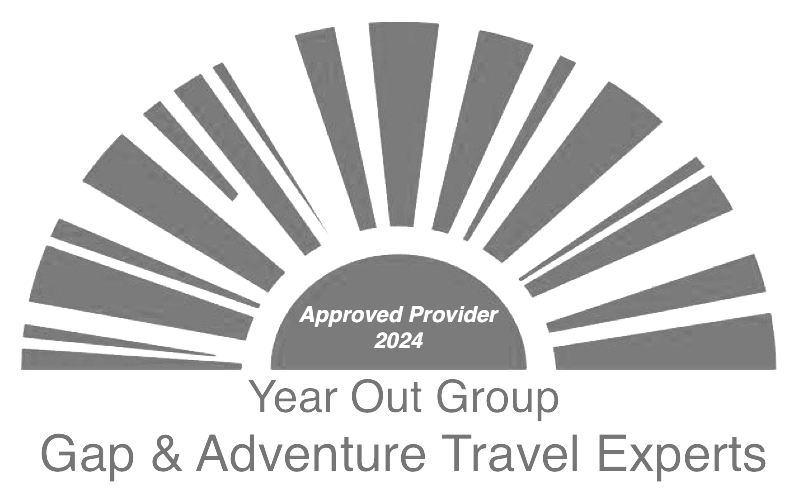Wild and Free
We know that the long-term effects of human interaction on wild animals can be seriously devastating. And we believe that all volunteer projects should follow a strict set of guidelines when it comes to animal interactions, guidelines that follow not only the law, but also the recommendations by the scientific and conservation community.
Knowing which projects follow these guidelines also allows prospective volunteers a reliable basis on which to choose worthwhile programme experiences. This allows potential volunteers to choose programmes which have been thoroughly vetted, and allows the industry standards to remain high when it comes to community development and environmental volunteering in Africa.
Organisations in South Africa which clearly explain, describe and govern volunteer projects are few and far between. The volunteering industry in South Africa has grown incredibly quickly over the years, and as there is large amounts of money invested in this industry, it can be very tricky to navigate. Captive bred predators, such as lions, cheetahs and tigers, sometimes start their lives in volunteer projects as cubs where volunteers are told the animals are orphaned. These animals, once they are too big for petting and hand rearing, are then sold back into the bone trade, or into canned lion hunting. You can see more about this industry in the documentary – Blood Lions. A must-see for all potential volunteers wanting to work with big cats in Africa (http://www.bloodlions.org/).
Good Hope Volunteers suggests that all volunteers do thorough due diligence when it comes to choosing programmes and projects. We suggest you follow guidelines set out by Fair Trade Travel South Africa (http://www.fairtrade.travel) , the Endangered Wildlife Trust (https://www.ewt.org.za/), and Volunteer South Africa (https://saytc.co.za/), and that you ask IMPORTANT questions when you arrive at projects, that you don’t believe everything you hear, and you investigate every claim put forward by the projects. It is also the volunteer’s responsibility to report project policies you feel aren’t adhering to the best practices.
Volunteers should commit to following a few simple principles when working with animals in Africa:
- No animals should be petted/touched unless for emergency medical care
- No animals should be bred under any circumstances in animal sanctuaries
- No animals should be drugged, mutilated or harmed for the purpose of tourist experiences
- No animals should be hand fed for entertainment or ridden under any circumstances
All projects should follow the simple 5 principle beliefs:
ANY PROJECT/PROGRAMME WHICH DOES NOT FOLLOW THESE BELIEFS SHOULD BE AVOIDED
- ALL ANIMALS SHOULD HAVE ready access to fresh water and a diet to maintain full health and vigour.
- ALL ANIMALS SHOULD BE provided an appropriate environment or appropriate sized enclosure including shelter and a comfortable resting area.
- ALL ANIMALS SHOULD BE provided freedom from pain, injury or disease: and should be provided prevention care or rapid diagnosis and treatment.
- ALL ANIMALS SHOULD BE provided sufficient space, proper facilities and company of the animal’s own kind.
- ALL ANIMALS SHOULD BE ENSURED conditions and treatment that avoid mental suffering.
The Endangered Wildlife Trust is calling on all South Africans and all international visitors to South Africa/Africa to be the voice for the voiceless and join the fight against keeping carnivores in captivity for petting, walking-with, photo-tourism, captive hunting and the trade in their body parts. Members of the public unwittingly play an enormous role in an industry that thrives off keeping carnivores like lions, cheetah, leopards and African Wild Dogs behind bars, often for nefarious reasons. Stop the visits, stop the cycle.
In conclusion, petting ANY CUBS, walking ANY ANIMALS, feeding ANY wild cats or riding ANY ELEPHANT is inadvertently harming these animals in the worst type of way, and for many, especially large cats and predators, allowing these activities is sentencing them to death.
KEEP YOUR HANDS-OFF WILD ANIMALS, ASK QUESTIONS AND REPORT ANY AND ALL SUSPICIOUS ACTIVITY/POLICIES AT VOLUNTEER PROJECTS! TAKE THE #WILDNFREE PLEDGE TODAY!
Yours,
Vanessa
To be part of our amazing volunteer community, please contact us.

